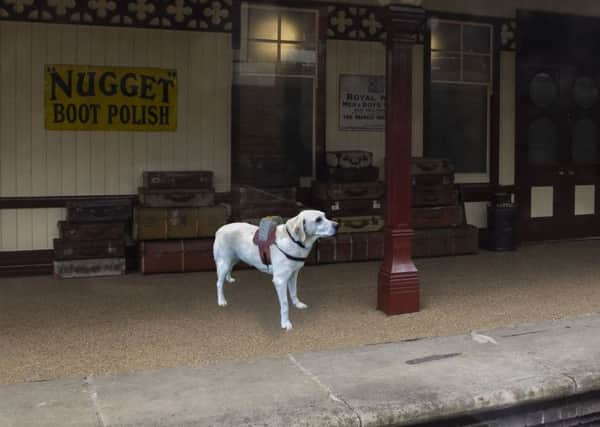A railway ghost story


Large city railway stations can be quite intimidating at night, after almost all the trains have left.
There may be just enough activity to require at least a basic level of staffing across the hours when it is dark, even in mid-summer, but it is never entirely dark, and large cavernous spaces full of strange shapes can give rise to strange imaginings.
Advertisement
Hide AdAdvertisement
Hide AdAt these times the only sounds might be the scuffling of the rats and mice which emerge at night, and there is always a way into a station for dogs and cats attracted by them.
There is a story about two young men who reacted very differently to their experiences at night in a large city station.
Like many stories, there may just be a glimmer of truth in it; it is impossible to say now.
Tom and Bob started work as lad porters at a large station many years ago. Long before it was described officially as job sharing, that is what it was.
Advertisement
Hide AdAdvertisement
Hide AdThey worked alternate nights, and their duties consisted of seeing the last passenger trains out in the wee small hours, then cleaning lamps and other menial tasks until the arrival of the newspaper train at around 3.30am.
Their principal task of the night was to unload the newspapers from the train and transfer them to the wholesalers’ vans.
After this spike of activity they had to close and lock the main gates and extinguish the station lights.
They could then retire to the little room beside the Goods Office, where they built a fire with the bucketful of coal ‘borrowed’ earlier from a friendly driver, and set the kettle to boil.
Advertisement
Hide AdAdvertisement
Hide AdThere was supposed to be a policeman on duty in the station during the night, but, especially in the winter, he was usually inspecting some of the warmer rooms and didn’t often get as far as the Goods Office.
This meant that the lad on duty was often totally alone until the arrival of the day shift a couple of hours later.
One night, as Tom extinguished the station lights, he thought he saw a shadowy movement near the entrance to one of the platforms.
Not unduly worried, he hoisted his lantern and set off to investigate. He found nothing.
Advertisement
Hide AdAdvertisement
Hide AdOn his way back, he felt a gentle nudge at the back of his knee, the sort of nudge a dog will give you to draw attention to something at which he does not want to bark.
Instinctively Tom turned round, and found himself looking at two large eyes.
With a shriek he ran to the Goods Office and locked himself in.
When the early turn arrived, they found him a gibbering wreck. He was taken away by the men in white coats and spent the rest of his life in an asylum.
Advertisement
Hide AdAdvertisement
Hide AdHe could often be heard shouting at the animal that had literally frightened him out of his wits when he was a lad.
The next night, Bob arrived for duty, having heard about the previous night’s goings on, so he was prepared for what was to happen.
After seeing the newspapers away, locking the main gates and extinguishing the station lights, he walked back to the Goods Office.
On the way, he felt a nudge behind his knee. He shouted at the dog to clear off, which it did.
Advertisement
Hide AdAdvertisement
Hide AdKnowing now that he was in command of the dog, he never experienced any more potentially frightening events.
Quite early in the history of the railways, before the days of industrial injuries compensation, many large stations had dogs with collecting boxes, whose proceeds were used to support railwaymen who had been injured at work.
These dogs entered into the spirit of their purpose and were amiable creatures, who might occasionally give a nudge behind the knee of somebody passing them without contributing.